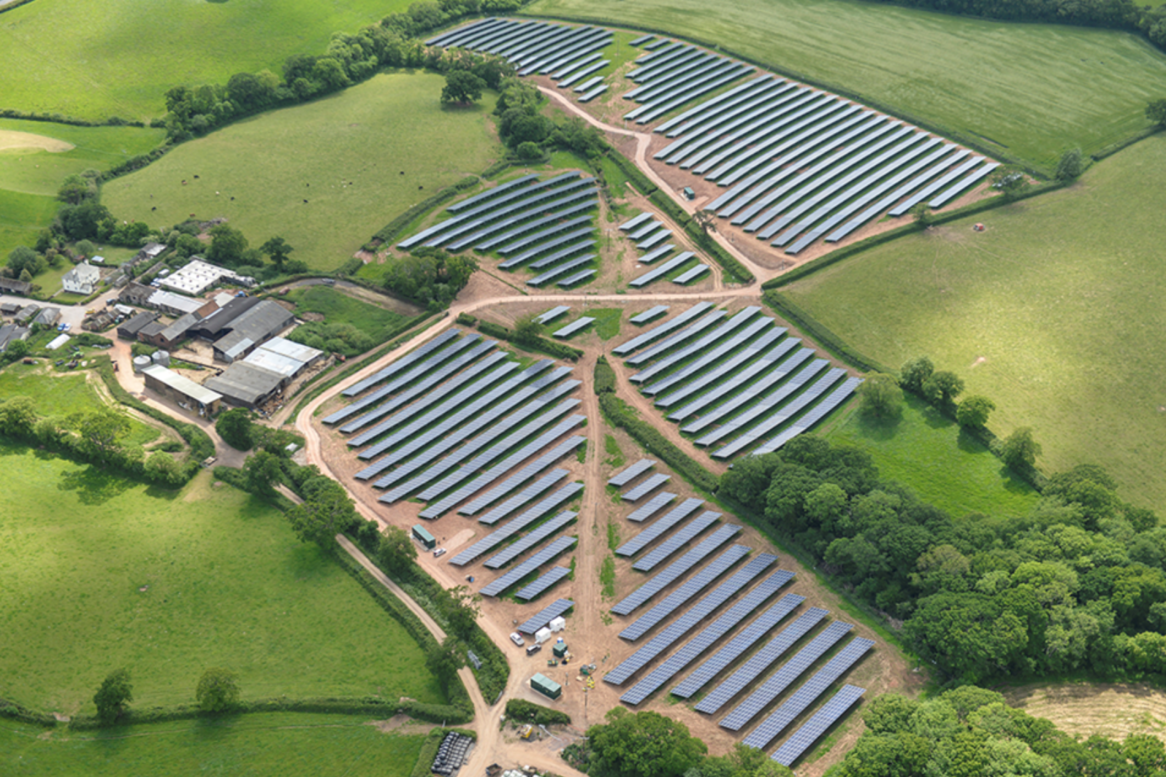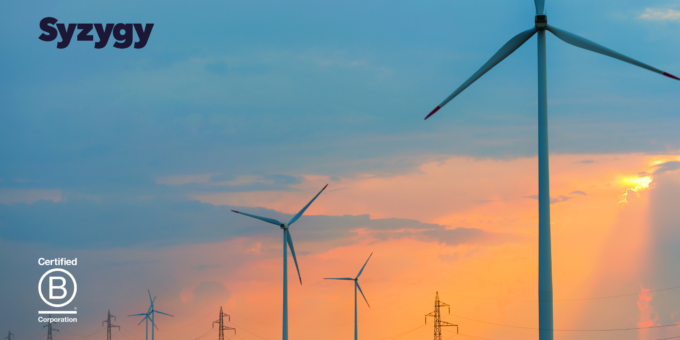Introduction
The United Kingdom has been on the forefront of integrating renewable energy, with the country not only passing multiple regulations calling for higher shares of wind, and solar generation, but also announcing multiple initiatives to accelerate the UK’s transition towards electric transportation.
Great British Energy (GB Energy) is currently a promising initiative proposed by the recently elected Labour government. The program offers policies promising reductions in energy bills, more energy security, an increase in employment opportunities, and a much more “homegrown” remedy to combat Britain’s energy crisis. This aims to facilitate local assets, creating a local, stable, and secure energy supply chain capable of supporting families, corporations and facilitating a renewable Britain of tomorrow.
Great British Energy – What is it?
GB Energy is a new, state-owned energy provider and planned investment body announced as part of the Labour government’s energy policy, with the purpose of facilitating and providing investment in renewable energy and a target of generating ~8 GW of renewable power by 2030. The model takes inspiration from successful initiatives such as France’s EDF and Sweden’s Vattenfall, with targets to integrate renewable energy within the country and invest actively in technologies involving wind and solar, as well as nuclear and hydrogen.
Investment Plans
The initiative plans on closing the gap created by a heavily privatised energy sector by creating public-private partnerships and work alongside private businesses in sectors with high risks, therein allowing the entity to maximise cost reductive affects in existing markets, while creating a supporting foundation allowing the body to explore more cost-heavy technologies such as hydrogen.
|
Mature Technologies |
Small/Medium Energy Project |
Emerging Technologies |
|
Onshore Wind |
Solar |
Green Hydrogen |
|
Solar Power |
Wind |
Floating Offshore Windfarms |
|
Nuclear Energy |
Hydroelectricity |
Tidal Power |
Benefits of GB Energy
Set to be established as a publicly owned company with an independent board and mode of operation, GB Energy has been advertised by Labour to provide a plethora of solutions to the existing national energy crisis. The UK is currently heavily dependent on countries such as Norway, Qatar, the US, and Russia on imported fossil fuel for energy generation. This highly reliant energy supply chain has been detrimental for the country’s energy sector in the past due to its fragile nature and has been susceptible to geo-political relations and conflicts. GB Energy plans on reducing this very reliance on the international community. To create a self-sufficient, self-reliant, and self-dependent energy supply chain capable of reducing energy costs, empowering locals through the creation of employment opportunities, and accelerating the country’s advancements towards an envisioned 2030 green energy target.
Electrifying Transportation
In addition to Labours’ plans to accelerate renewable energy generation in the country through GB Energy, the party has further called for an increase in initiatives and targets with regards to electric vehicles and chargepoints in the UK.
The UK is currently the 17th largest vehicle producer in the world, dropping from previous, higher rankings due to supply chain issues, energy costs, and trade barriers, as well as inconsistent regulatory frameworks introduced by previous governments. While manufacturers have been preparing to meet impending vehicular demands ever since EV targets within the country were introduced, a market as nascent as EV cannot withstand and progress without the availability of active regulations, policies, frameworks, and incentives from the government.
Labour, as part of their manifesto, plans on introducing reforms and active initiatives to support and further EVs within the country, centering their automotive strategy around Zero Emission Vehicles (ZEVs), and the commercial vehicle sector. Recent growths in ZEVs within the UK have been majorly owed to the purchase of M1 (passenger) vehicles. Although there exists an immense demand for commercial ZEVs as well, it has yet to translate into registrations, majorly due to inconsistent public policies and a weak domestic supply chain.
Much of the UK’s EV supply chain, like the EU’s, is depends largely on countries such as China – raw materials required for all aspects of the EV supply chain, from sourcing to assembly, are mostly sources from China, which is one of the largest contributors of Silicon, Lithium, and Nickel. Recent geo-political conflicts in Europe have also had a detrimental effect on this supply chain as prices for raw materials have exponentially increased. Additionally, with Chinese automotive giants such as BYD benefiting from extensive government subsidies reducing manufacturing costs by up to ~45%, there remains an unbalance in the European automotive sector, with competitiveness being tilted towards low-cost vehicles. Several measures have been taken by the UK government in response to international brands and their influence on the UK vehicle market, such as the Rules of Origin policy. This calls for a higher emphasis and preference on European and British made vehicles, and the recently proposed import tariff proposed by the EU on Chinese companies to balance out competitiveness.
Labour has, on the other hand, chosen to strike the right chord – the party announced plans to align EV manufacturing with battery production in the country, through the establishment of local gigafactories to support domestic production. The initiative, said to be funded through the National Wealth Fund, is expected to power 2 million EVs and add £30 billion to the British economy. Labour further plans on introducing a more accurate labelling system for EVs within the country, including information such as the vehicle’s carbon footprint, battery range, expected lifespan, and a standardised battery health certificate to promote the second-hand EV market. Additionally, Labour plans on delaying the Rules of Origin policy for the time being, which is extremely crucial to not disrupt the recently restarted EV supply chain within the country and continue to supplement demand through international models.
The UK currently has close to 65,000 chargepoints installed. The previous government’s target of 300,000 CPs by 2030, extending to 800,000 by 2040, is at best, utopian at the current pace of development. However, Labour’s approach towards accelerating the EVCI (EV Charging Infrastructure) sector focuses on spreading out the installation of chargepoints across the UK, as opposed to the current concentration within London alone.
Synergizing with Syzygy
Syzygy not only acts as a consulting body, but as a gateway for our clients towards achieving their carbon-neutrality goals. GB Energy’s mission aligns with global efforts to combat climate change. For commercial real estate owners, achieving net-zero emissions becomes a strategic imperative.
Syzygy Consulting’s role extends past technical expertise. It must guide clients—property developers, investors, and occupiers—toward sustainable practices, as well as strategic alignment with initiatives being proposed by the newly elected government. Understanding these new initiatives is key for clients to advance their carbon-neutral portfolio. Renewable energy infrastructure is often met with concerns due to the immense complexity and often the lack of information available from regulators.
Strategic partnerships can now be formed due to GBE's emergence. As the initiative calls for an increase in localised investments for renewable energy generation, Syzygy can collaborate with clients to create tailored Roadmaps. Syzygy can go beyond conventional renewable energy generation techniques such as Solar PV and take advantage of emerging technologies such as green hydrogen, offshore wind generation, and nuclear energy.
Real estate portfolios must evolve, with evolution not just taking place within the types of energy techniques available, but also the strategic alignment of projects with regulations proposed by governments. Syzygy’s expertise in retrofitting existing buildings, optimising energy use, and integrating renewables positions it as a key ally. The regulations implemented by Labour, especially through the GB Energy schemes allow an exponential increase in opportunities for commercial real estate owners to expand their net zero portfolio. GB Energy’s investments into technologies and local council integration, alongside Syzygy’s expertise in implementing said technologies could help benefit Syzygy clientele and national net zero targets.
Labour plans to commit to a 10-year automotive R&D funding, matching the amounts allocated to the aerospace sector. They also intend to release and redirect existing chargepoint funding, including the unreleased £950 million Rapid Charging Fund announced in March 2020. Additionally, Labour aims to reinstate the 2030 EV target, calling for 100% zero-emission vehicle sales. These actions demonstrate Labour's clear intention to accelerate the rollout of electric vehicles and electric vehicle charge points in the coming years.
Additionally, Labour plans to speed up planning decisions for net-zero infrastructure such as charging, by removing unnecessary planning barriers that delay projects. They aim to accelerate the rollout of chargepoints by removing impositions like planning permissions for rapid chargers, and investing in grid expansion. This will enable the largest upgrade to the UK's national transmission infrastructure in a generation, with a Future Systems Operator taking on the role of system architect to adopt a more strategic approach to identifying future demand. Importantly, the government has also announced plans to make chargepoint data open access.
Amidst these proposals and initiatives, Syzygy’s expertise in EVs and EVCPs, along with our data analytics and asset management platform, evlab®, will provide landlords with a complete end-to-end solution to help transition their portfolios towards carbon neutrality. Landlords will gain insight, recommendations, and understanding of how the new initiatives can help them make cost-effective decisions and maximise portfolio output.
Opportunities for Syzygy’s Clients
With the new laws and targets in mind, Syzygy can offer comprehensive energy transition strategies. These surpass mere compliance—they consider financial viability, tenant engagement, and long-term resilience. GB Energy’s projects and investments within solar farms, wind turbines, and energy storage have the potential to create tangible pathways for real estate owners. Syzygy’s guidance ensures seamless adoption, along with bespoke recommendation combining multifaceted technological approaches to integrate technologies capable of utilising our client’s portfolio and potential to the maximum extend.
With the many laws and regulations now being introduced, understanding these inevitable regulatory changes and mitigating risks is imperative. Syzygy’s legal and compliance experts can navigate the evolving landscape, allowing clients to fully understand the scope of new laws and policies, and take advantage of them. GB Energy’s influence extends to policy formulation in addition to investments – the coming years under Labour will potentially see changes in the country’s renewable energy policy and targets such as the ones highlighted above. Consultancies must interpret regulations and help clients adapt, which is where Syzygy’s role as a one-stop solution comes into play, offering services ranging from recommendation, asset analysis, to project implementation and management.
Syzygy’s focus on commercial viability dovetails with GBE’s vision. Real estate owners can enhance financial resilience by embracing green technologies – Syzygy stands for a renewable future, which remains its highest priority whenever handling a project. How to effectively introduce a circular energy utilisation system allowing for complete self-dependence of an asset on renewable energy is key and is a specialisation Syzygy prides itself on. As Energy cost savings, green certifications (such as BREEAM or LEED), and sustainable tenant engagement strategies become competitive advantages, Syzygy’s expertise in these green technologies provides a competitive advantage in renewable energy generation portfolios.
Challenges Ahead: A Deeper Dive
While these targets and policies are impressive and, if implemented, may allow the country’s transition towards carbon neutrality to advance exponentially, real estate owners still face retrofit challenges. With grid limitations, and red tapes around procedures, Syzygy must assess existing infrastructure, recommend upgrades, and integrate renewable solutions. Balancing historical architecture, tenant comfort, and energy efficiency requires nuanced expertise. Beyond kilowatt-hours, GBE’s impact is cultural. Real estate owners must foster sustainability consciousness. Policies proposed, while potentially fruitful, remain to be implemented, while regulations providing a set of rules and guidance for EV charging for new and existing workplace buildings remain to be seen within the UK. Funds such as the Rapid Charger scheme to be released by Labour in their tenure have historically required numerous steps and intricacies to go through to access, often delaying installation projects immensely. These red tapes must be reduced to allow installers and CPOs readily available access in order to implement projects.
While GB Energy promises to invest in the multitude of renewable energy technologies it has stated, what must be kept in mind is the maturity of these technologies as well as the implementation. While solar pv, and onshore wind are two technologies that have been implemented for over a decade, other technologies such as green hydrogen, and offshore wind are nascent when it comes to the British demography. A proper plan for rollout and implementation, and more importantly, how these would relate to carbon neutral initiatives is imperative if GB Energy is to play an effective role in existing energy markets. How this body makes its position amidst existing privatised players, and to what extent does it lower the cost of energy is yet to be highlighted by Labour. Syzygy can educate stakeholders, emphasizing the triple bottom line: people, planet, and profit. With the multitude of regulations and ideas being proposed by the new government, a number of questions remain:
- How these are to be implemented?
- What is the timeline for the planned rollouts?
- How will these initiatives impact the wider, global renewable energy market?
While localised production through gigafactories may exponentially decrease production costs of batteries, panels, and turbines, setting up mining facilities at identified sources is a major cost. This is followed by processes such as material refinement, manufacture, and distribution, all three of which are currently majorly outsourced to other countries. GB Energy and the newly elected Labour government has promised a vision that can take the UK on top of the global renewable energy leaderboard – what is to be seen is how this vision will be turned into reality.
Written by Humza Farhan




